International Community Development Profile: Rachel Kigala Family in Tanzania
In this series, families in the Reaching Children’s Potential (RCP) Demonstration Program in Tanzania explain how their participation improves their lives. Global Volunteers’ RCP Program engages short-term volunteers to help parents deliver essential services improving health, eradicating hunger, and enhancing cognition – with the goal of eliminating child stunting in the Ukwega Ward and throughout Tanzania. Through RCP, families obtain the nutrition, health care, knowledge, technology, and encouragement needed to combat stunting, and to ensure their children can realize their full potential. The RCP Program is a child-focused, parent-driven, family-centered, and community-led comprehensive effort. It begins with pregnancy, and continues through the 18th birthday, with a focus on the first 1,000 days of life. Read Rachel Kigala’s interview about the RCP Program here.
Can you tell us a bit about where you grew up and where you went to school? What is a normal day like for you, Rachel?
I was born and raised in Ipalamwa and I went to secondary school here. I live at my parents’ house with my mom, dad, and siblings. I met the father of my child here in Ipalamwa. Ipalamwa has a lot of fresh foods and fruits, along with fertile land where many crops can grow. My parents and my child’s father are all very supportive.
I always wake up at 5:00 in the morning and conduct domestic activities and prepare breakfast before I go to the farm. We grow beans, corn, bananas, avocados, mangoes, and potatoes. I spend most of my time in the field. I get water at a place near our house that is less than five minutes away. When I get time to relax, I just spend time with my child, teaching my siblings, telling stories with friends, and sometimes reading books, especially biology books, for my own benefit.
What values from your ancestors and cultures are you trying to maintain?
When a man wants to get married, he and his family must pay a dowry to the bride’s family. If it happens that a woman who is still living at her parents’ house conceives or delivers a baby and a dowry has not been paid previously, then the woman’s side will not recognize that man as the father of the children until the dowry is paid.
Another part of our culture is that if there is a funeral on the side of the family of a married woman who lives with her husband, the woman needs to attend the funeral and go stay at her family’s house. The woman is not allowed to go back to her husband’s house after the funeral ends until her husband pays a small amount of money to the wife’s family the day after the burial. If a husband is not able to pay that amount, then the wife will never go back to her husband even if she was married and the dowry was paid before marriage.
Also, when a woman’s husband dies, she is not allowed to remarry until her husband’s family announces that the lamentation of their son has ended. Sometimes this happens within a few days after the funeral, but sometimes it takes years. And the woman must wait for whatever period of time her deceased husband’s family says before remarrying.
What can you tell us about Denis?
He loves playing. His father chose his name. I hope Denis will be able to become very educated. I will be supportive of whatever he would like to become in the future as long as it is legal.
Denis is my first child and as a first-time mom, I was not aware of a lot of things. I joined the RCP Program when Denis was three weeks old and I have benefitted a lot from the workshops where I have learned so many things.
“I joined the RCP Program when Denis was three weeks old and I have benefitted a lot from the workshops where I have learned so many things.”
– Rachel Kigala, RCP mom
Do you celebrate birthdays?
Yes. When my child turned one, I bought him a small cake and new clothes, and I cooked rice and chicken and made drinks. I did the same last December when he turned two years old.
What are the personal changes you’ve made in your life since joining RCP that have resulted in better health for you and you children? What are you doing differently now?
My child was suffering a lot from coughs and runny noses because I was taking him with me to the farm very early in the morning. In the program I was advised not to take my child with me on the mornings that it is very cold. So, I followed the advice and it has been a while since my child got sick with a cough or runny nose.
From the program I have also learned that as parents, we should create a friendly environment and make sure our children free feel to express their feelings. So now I play with my child, talk to him, teach him games, and show him a happy face. I can say my child is my friend. When we were young, our parents were not able to raise us in friendly way because they didn’t receive this education, but I’m doing this with my child and I hope the generation after me will also learn from me.
“Now I play with my child, talk to him, teach him games, and show him a happy face. I can say my child is my friend. When we were young, our parents were not able to raise us in friendly way because they didn’t receive this education, but I’m doing this with my child and I hope the generation after me will also learn from me.”
– Rachel Kigala, RCP mom
When you learned about handwashing stations, what did you decide to do at home?
I love the handwashing station because I first learned about it when I was at Ipalamwa Secondary School. That’s where I first used the station, but I also attended the RCP workshop on hand washing and then I received a station for my house. It is a very nice technology because it stops contamination from spreading. When you come from the bathroom, you just go directly to the hand-washing station without touching anything and wash your hands with soap and clean water. Before, we would go inside the house right away and touch dishes and other things so it was easy to spread bacteria. I taught my parents and siblings on the correct use of the hand-washing station and insisted that they wash their hands regularly. They were very happy right from the first day and they always wash their hands at the hand-washing station now. We have become very healthy since we are no longer suffering from diseases, especially stomach flu.
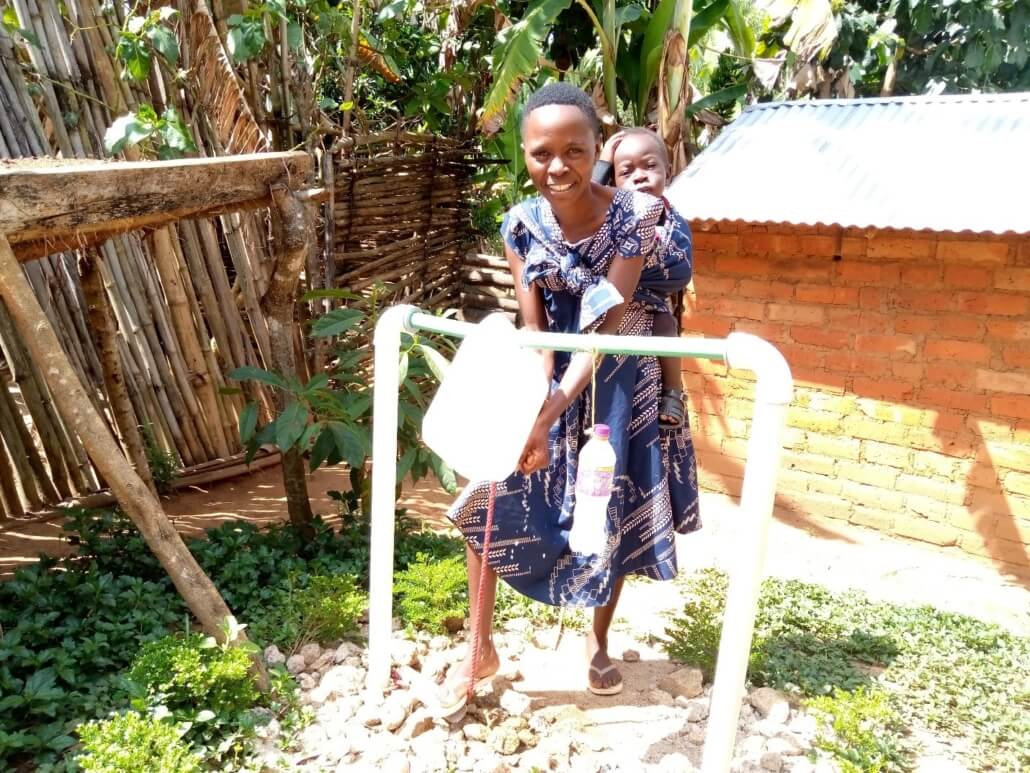
Rachel first learned about hand washing at her high school and then through an RCP workshop. 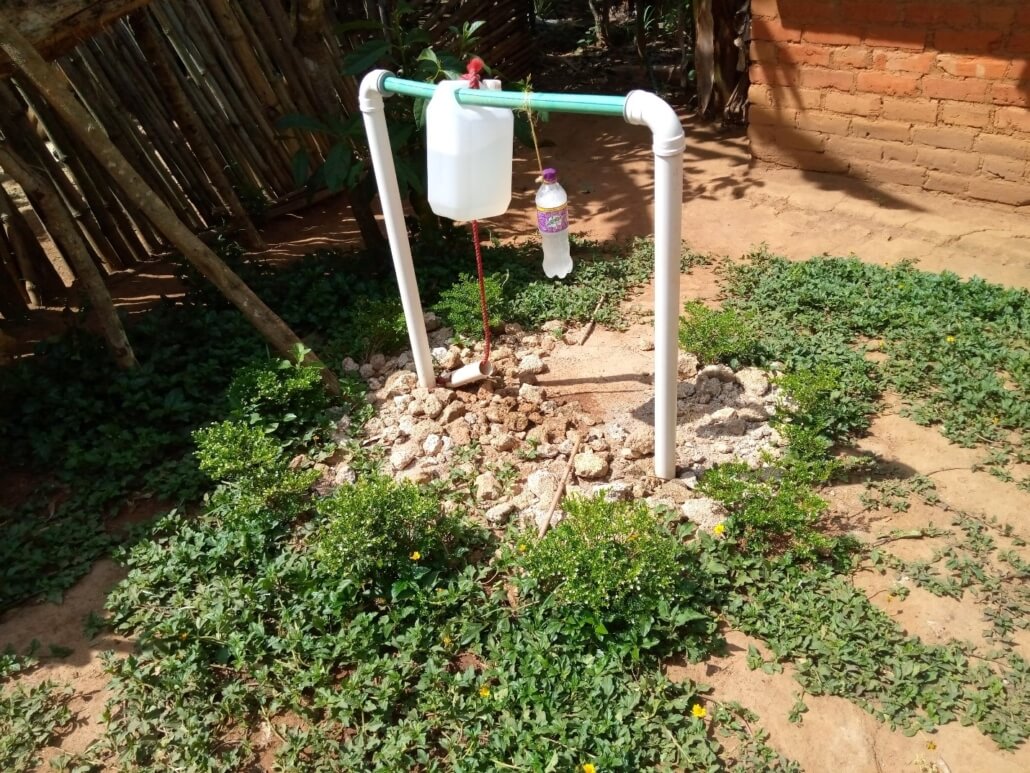
Rachel says her whole family uses the hand-washing station now.
Have the Rise Against Hunger meals been important to you?
The Rise Against Hunger meals are first delicious and helpful, especially to my child. When cooking the food, I always add a little oil and salt. My child likes Rise Against Hunger meals and vegetable soup more than any other food. He is very healthy and his weight is always good. We eat the Rise Against Hunger meals once or twice per day and we always eat three meals per day. Other foods that we eat are ugali, rice, vegetables, potatoes, bananas, beans, sardines, meat, fish, and fruits. Denis is not very picky. All in all, Rise Against Hunger meals have been very helpful to me because I always feel stronger when I eat the food and my child’s health is great.
How have your EarthBoxes helped you supplement your family’s nutrition?
I was very happy when I was given the EarthBoxes with cucumbers, spinach, and green pepper. They have been very helpful to me and my family. I water the EarthBoxes every day as instructed to make sure that I get good results. My child likes cucumbers a lot and I’m happy that I now have easy access to them.
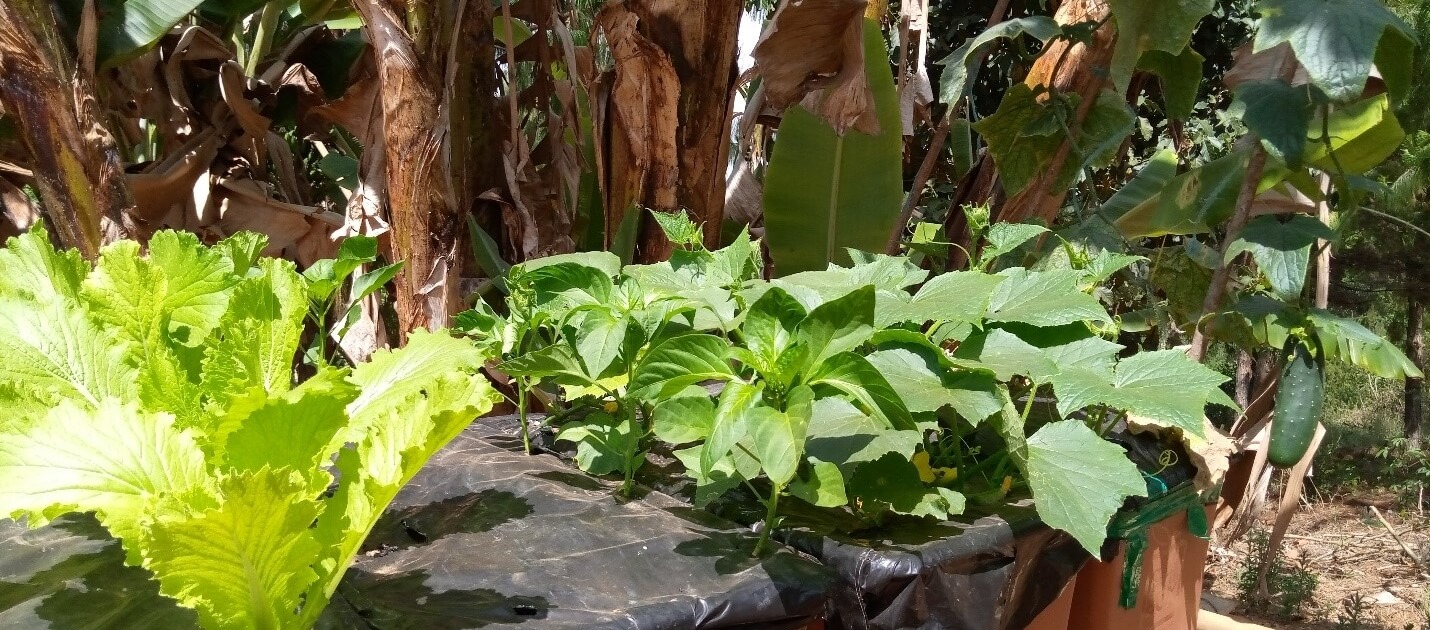
If you have been using the clinic services in Ipalamwa, how are they different from medical services available before the clinic opened?
The services at Ipalamwa General Clinic are great. There are a lot of medicines which are appropriate for each disease and they cure patients easily. Also, there are professionals who handle every patient very well and with care.
What are your family’s biggest challenges? How do you try to address them?
I become very sad when my child gets sick because he is my happiness. But I’m happy that he has never gotten seriously ill and now it’s rare for him to get sick at all. I always try my best to keep him healthy all the time. I make sure that he is getting meals on time and eats a variety of foods. I also practice good hygiene, especially changing diapers frequently in order to avoid UTIs, fungus, and other diseases.
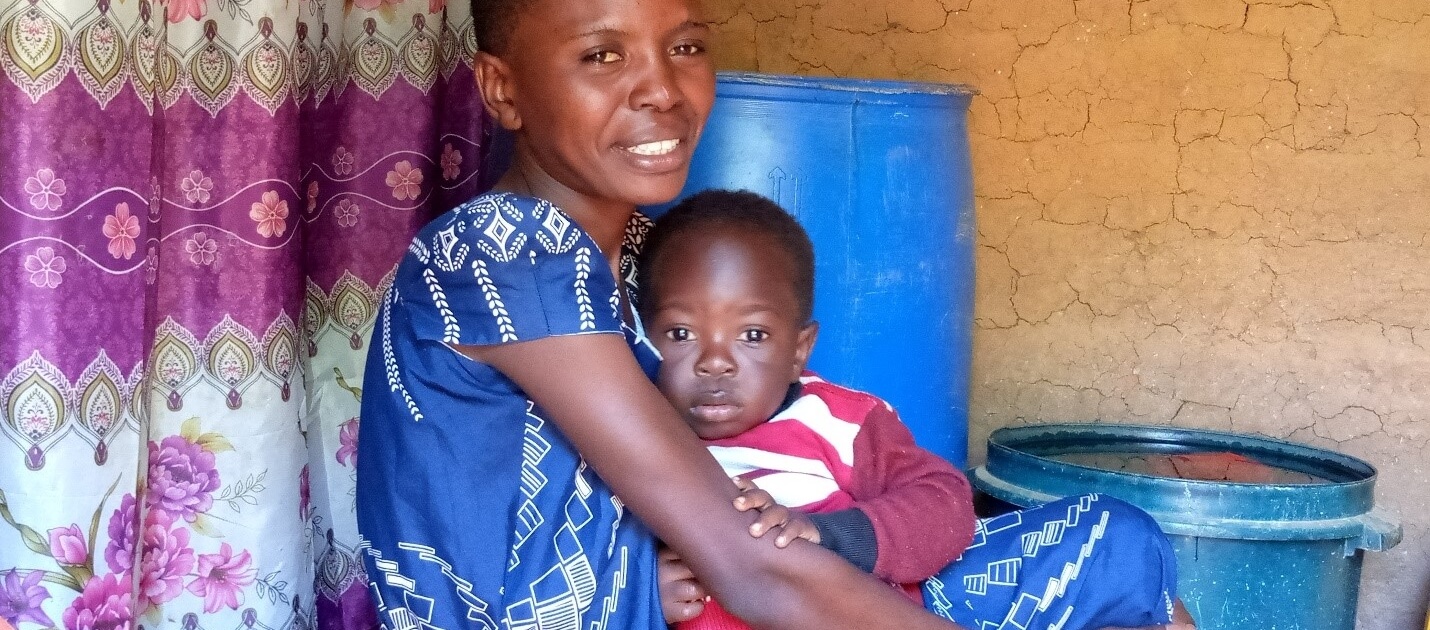
What are you most proud of in your family? What do you hope for in the future?
I’m very happy and proud to be Denis’s mother. In the future, I would like to start a business of selling clothes here in the village.

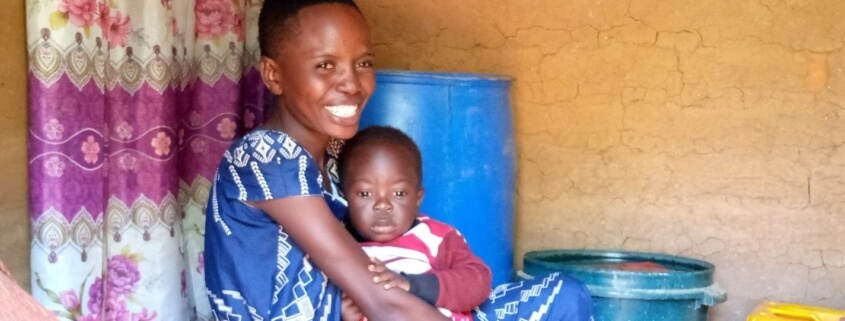
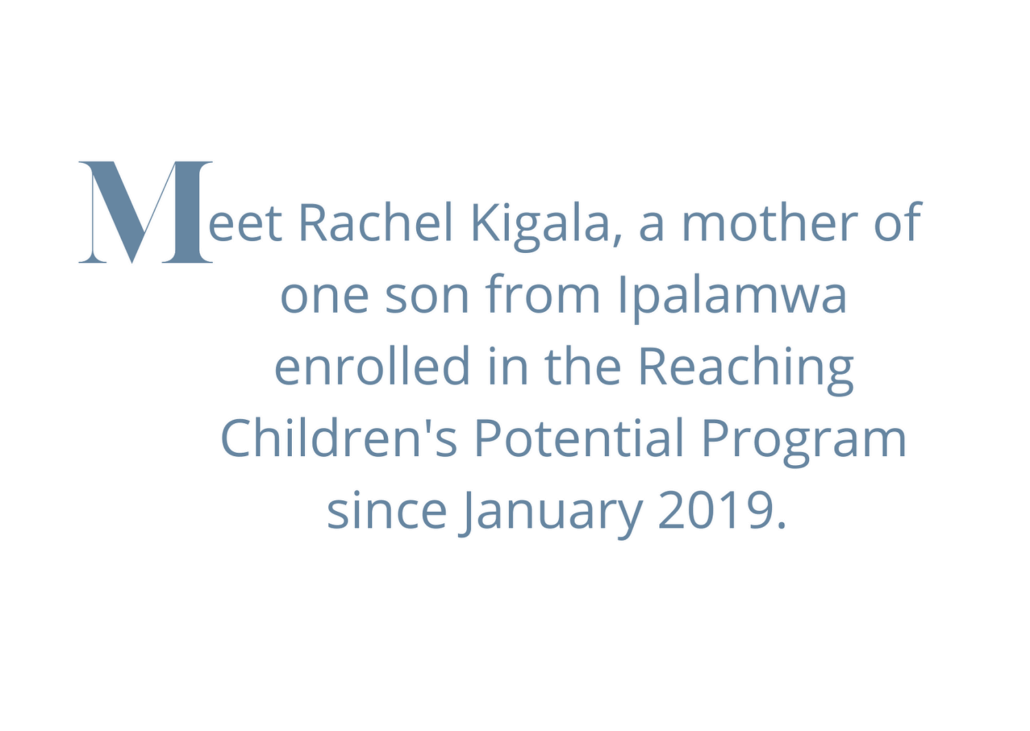
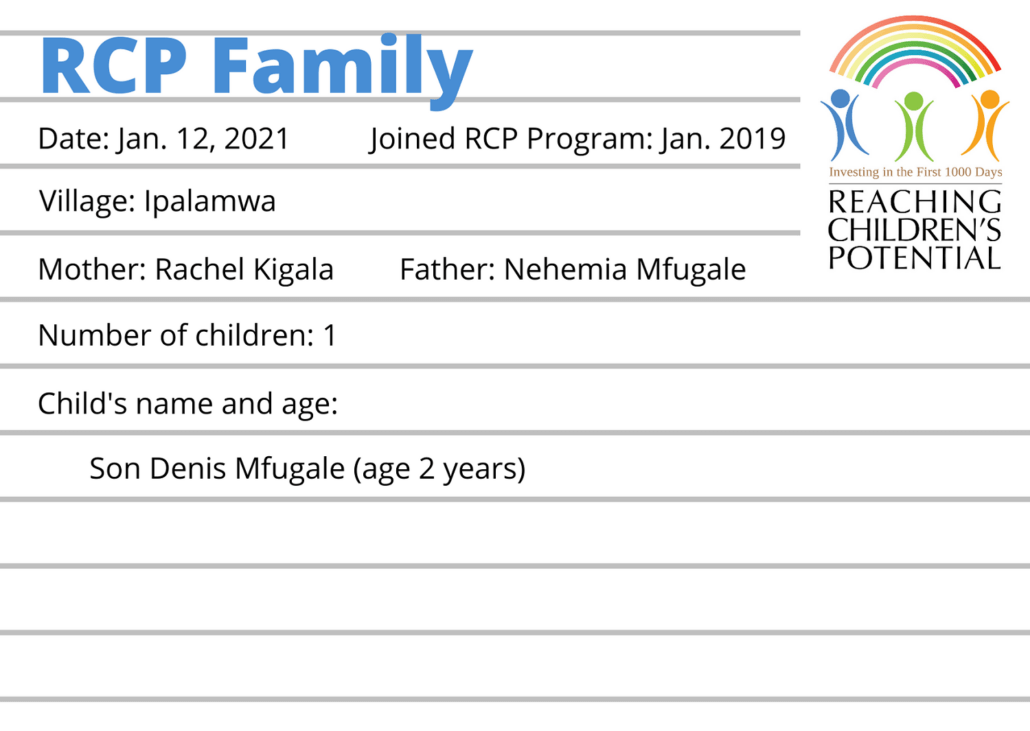


Leave a Reply
Want to join the discussion?Feel free to contribute!